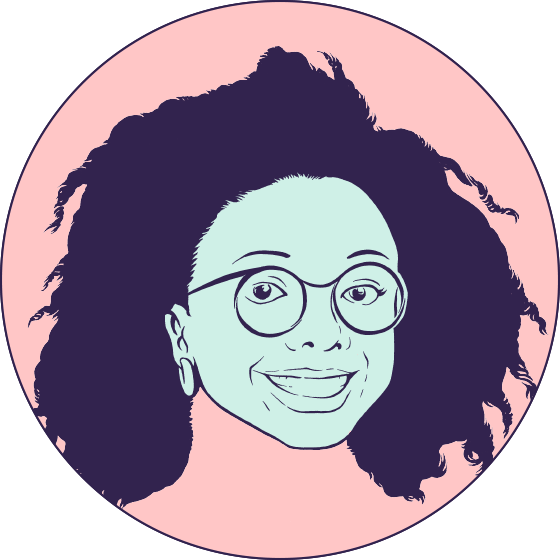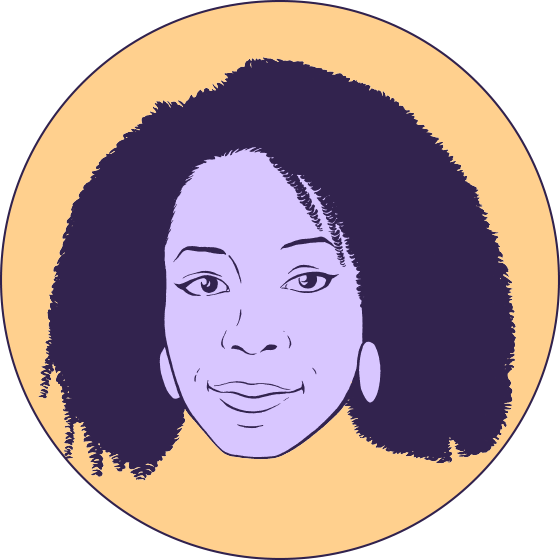The morning of November 9, 2016, I talked to the empty air of my bedroom, hoping to summon peace, clarity, a way forward, or — at the very least — the energy to move. I woke up alone, rolled over to the side of my bed, and opened a tray of notifications on my phone.
My first intakes of the day were short, staccato breaths, and a sea of logos, brands, and apps telling me the world was crumbling. Buried in their midst were texts from a friend to a small group of us, asking how we felt. I didn’t immediately respond, I just let a slow cascade of messages roll in as tears knocked behind my eyes.
In the days after black and brown people are killed by police and projected onto the evening news, after the countries our families immigrated from are destroyed by wars or nature, or after legislatures vote to erase us, there’s a certain imperviousness we’re often expected to display. People stand with a foot to our heads and ask, “Why are you angry?”
But the GroupMes, the iMessages, the WhatsApp groups, the email threads, the Slack rooms — spaces we make when we can’t be there in person — instantly remind us we’re still here. That morning, I needed a reminder that I was still alive, still in pain, still allowed to feel that pain, and still angry. Without those texts, I imagine my feelings would evaporate into an intangible fog in my bedroom. I imagine that, given time unattended, the fog would eventually crush me.
These spaces, particularly for people of color, aren’t like social media. They don’t by design put anyone at risk of harassment or of a stranger taking something out of context that wasn’t meant for them. If the space is intentional, it’s a digital therapy in your pocket. “The group chat” or “the group text” are terms that carry such ubiquity that they’re often spoken with the reverence of a proper noun. “I pledge allegiance to the group text,” poet Safia Elhillo writes, conjuring a cultural familiarity. They are where you go immediately when no one sees or understands you at work, or when you just want to talk about a meme. A laugh-crying emoji here speaks volumes. Your camera roll is full of screenshots from these chats, and they rarely reach a public feed. They’re an incubator for ideas, a compass for emotions, a jury balanced toward your best interests (“is he cute or does he just have dreadlocks?” as my friend likes to ask), and a gut check for ways to respond to (or endure) whiteness in contexts that range from casual annoyances to blatant racism.
Group chats are the trenches where I recharge while escaping to the bathroom on a bad “I’ve-actually-never-gone-out-with-a-black-guy” Tinder date (congratulations?) or after a stranger tries to pick at my hair without an invitation (Solange released a whole damn song about this in 2016 and y’all are still out here). Sometimes I get ignored (“hehe” a.k.a. “everyone in the chat already saw that tweet, please carry on”). Sometimes I get put on playful blast. Other times, they're just a mundane refuge.
The technology and existence of group chats isn’t new, and spans generational use. But at this juncture, they are especially important. In the moments when I’ve felt like curling into myself and shutting down, almost-instantaneous affirmations of life become essential. The cadence of an active group chat filled with people you love is a form of resuscitation, and these conversations contain multitudes as an expansion on in-person communication.
The best ones I’ve been in have been spontaneous and formed out of an immediate necessity: a shared experience that moved three or five people to chat privately, or a party-planning conversation that continued after its initial intent. One chat I’m in is a few black gay friends of mine talking about Gay Stuff all day. An unprompted “just saw a great man butt” is par for the course (and normally comes from me). Another chat is most of my immediate family, and it’s just a running stream of bitmoji, baby cousin pictures, and the occasional 300-word “CALL TO PRAYER” note that one of my aunties found on Facebook. I wish I could narrow my family’s chat to the baby pics because bitmoji unlock a deep existential fear in my soul and copy-pasted Joel Osteen quotes are emotionally detached, biblical spam but hey! Family, gotta love ‘em. I’ve been thinking about the enduring relevance of these spaces and how they’re used so I asked three online-and-IRL friends of mine to share some thoughts on their chats, too.

Jazmine Hughes, associate editor at The New York Times Magazine
Chat name: Cheetah Sisters
My sisters and I never really talk on the phone; occasionally we'll FaceTime if there's something interesting and disgusting going on, but there's no way to have a real conversation with five people at once, so we're in the group chat. Three of my sisters live together, so they'll air out domestic grievances (“whoever made dishes last night can CLEAN THEM”) while the other two of us stand by (“please take this to DM”). But we send memes (mostly of 90s Nicktoons characters), parental slights (“LOL DAD JUST SAID JERMANE PROBABLY ATE A LEAD PAINT CHIP WHEN SHE WAS YOUNGER / INSINUATING SHE'S DUMB / HE ALSO SAID JAZMINE HAD NO RHYTHM”), parental complaints (“who taught dad about memes”), flexes (“I got accepted to study abroad! I'm going to Florence” ... “I hope a squirrel bites your toe off when you get off the plane”), pictures of our crushes (“is that Bob Marley?”), etc.
Chiefly, we send insults: ugly pictures of each other (I have dedicated folders for ugly pictures of each sister), responses to any picture of each other (“marty i'm scared” is our general response), rude memes (targeted to a particular sister: “lol that's you”). I've instituted “selfie checks,” an idea I stole from a Slack channel, where everyone has to send a selfie of what they're doing. (We usually just send unflattering close-ups, which get saved to my ugly pictures folder.) It makes me laugh all day, and kills my phone battery.
It’s not unlike a secret clubhouse or an extension of my own brain, where all the sweet and bad bits are exposed. Heaven is a place where everyone gets your jokes. The group chat is a place where, if your jokes don't land, you have four people telling you how much you suck. I think the ideal group chat is a place where one can unabashedly be themselves. It's an ownership over our right to privacy and personal space — and certainly, POC are not afforded those rights equitably. But my group text is sacred because it's an extension of my family and myself.

Tracy Clayton, co-host of the Another Round podcast
Chat name: Buttertones & The Jam
[My group chat] is called Buttertones & The Jam, which is the name of the musical group/institution that my friends and I started. We mostly use it for check-ins, pettiness (it's a very safe space) and laughs — memes, funny stories. [My friend] Akoto keeps letting us know that she's run into Andre 3000 in Soho and I keep threatening to leave the group if it continues. Lately we've been sharing all the goofballs we come across on Tinder and Bumble.
They’re so important to me, especially as someone with anxiety. It takes a lot of energy to interact with people, even people that you like and love, but sometimes you get lonely, too. This way a bunch of my favorite people are in one place and always there for me. One thing that we've been doing since the start of the year is having regular check ins to hold each other accountable for the goals we've set for ourselves. I've done the least work of all of us, but seeing everyone celebrate and encourage themselves for meal planning or working out or speaking up in a meeting really is fortifying and nourishing and I'm so grateful to have it.
You can do your best to cultivate a troll-free social existence, both online and off, but this is a way that you're fully in control of who has access to you and the things you say. In this day and age, when life in the margins has become even harder, you really need that. So much more.

Bolu Babalola, writer
Chat name: Bad Bitches of the Diaspora
I work in TV in the UK — an industry within which people of colour and women are woefully underrepresented, both behind and in front of the screen. For a long time I was the only black woman in my department in the production company I worked for. In that period, I felt really viscerally alone — in my dreams and in my aspirations — and there was no one tangible around me who was going through the same thing. Then I hopped on Twitter and found a lot of us and they organically became friends, and then sisters, and then part of my daily life. Funny back and forths on the TL became DMs and DMs became group chats. We found each other, it was a natural drawing of kindred spirits. [One time], after I posted a thirst trap on Instagram, they all posted up in the group chat like “ummmm excuse you bitch??!?!?!”
Being black and a woman and loud on the internet can be tough, and sometimes you need somewhere to relax your shoulders, to take off the armor you have to put on every day because inevitably there will be something out there intended to hurt you… even when we're just making jokes, our jokes are a source of strength, laughter is crucial.
This life can be hard and long and sometimes we get tired from chipping holes through ceilings and trying to break down walls. It keeps us going. It's a gathering place that draws our power together and amplifies us to make the changes we are hungry for. It keeps us hopeful, galvanizes us. Sometimes it's just a place where we can rest our voice so we have the strength to make what we want known, because we don't dare let you forget it.